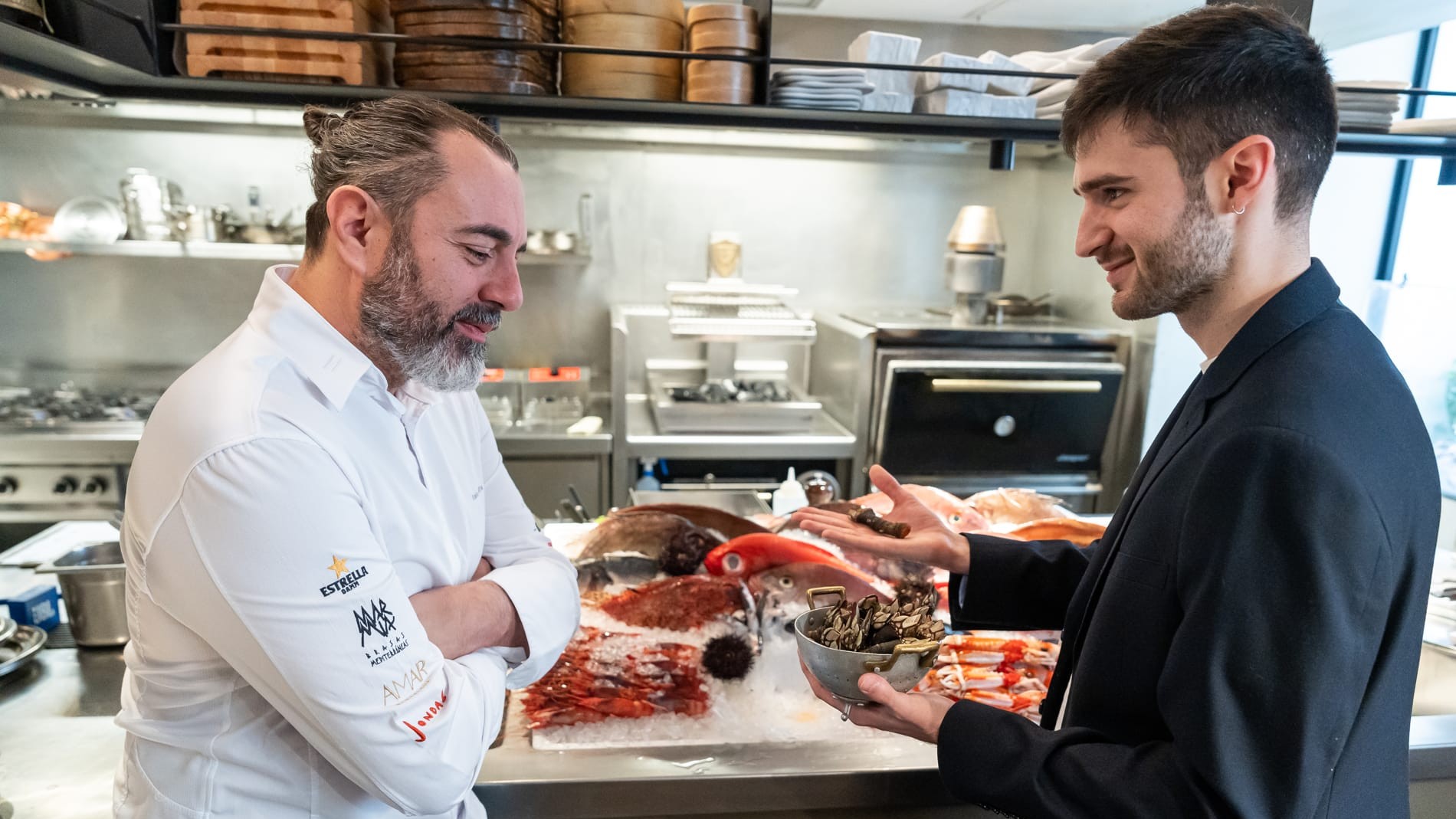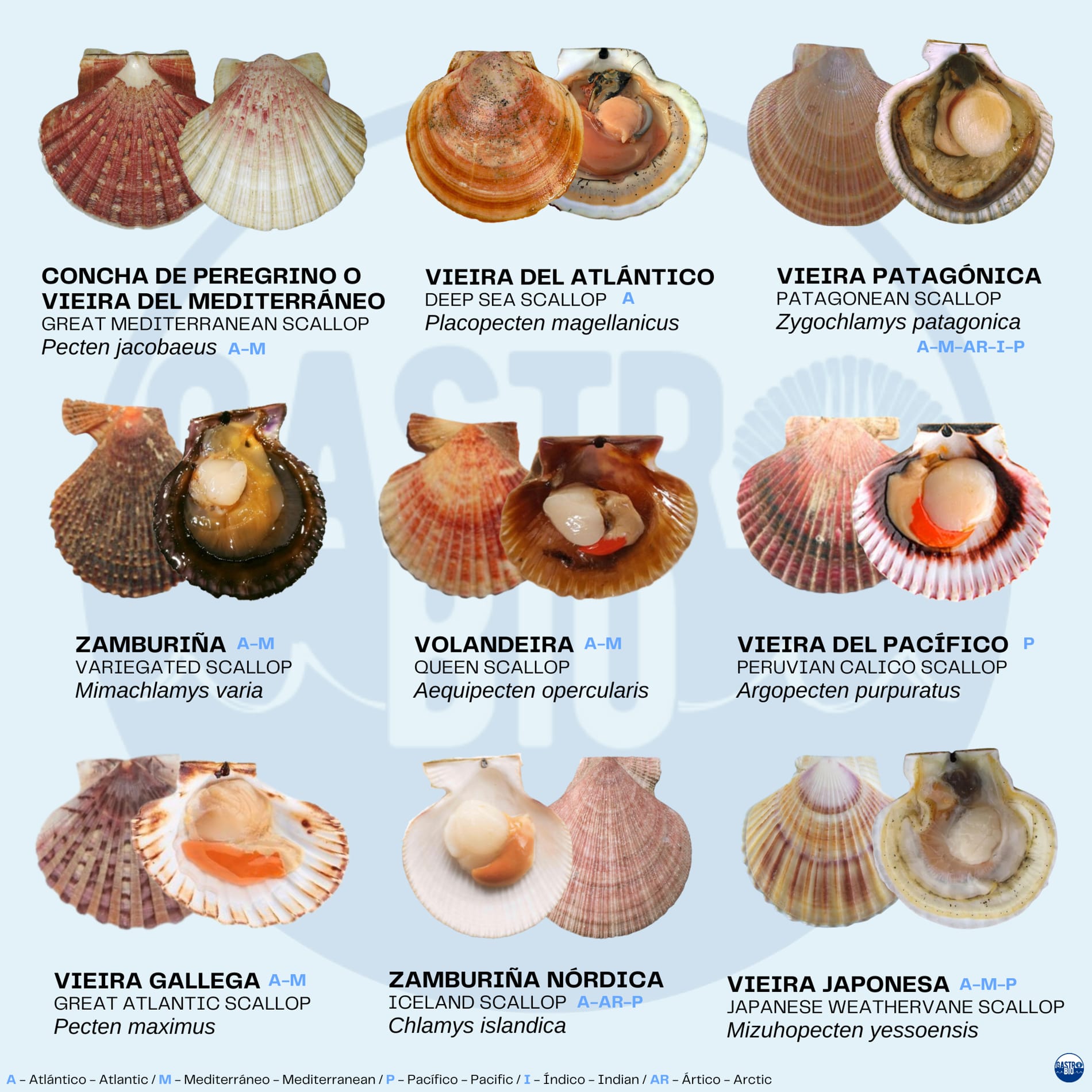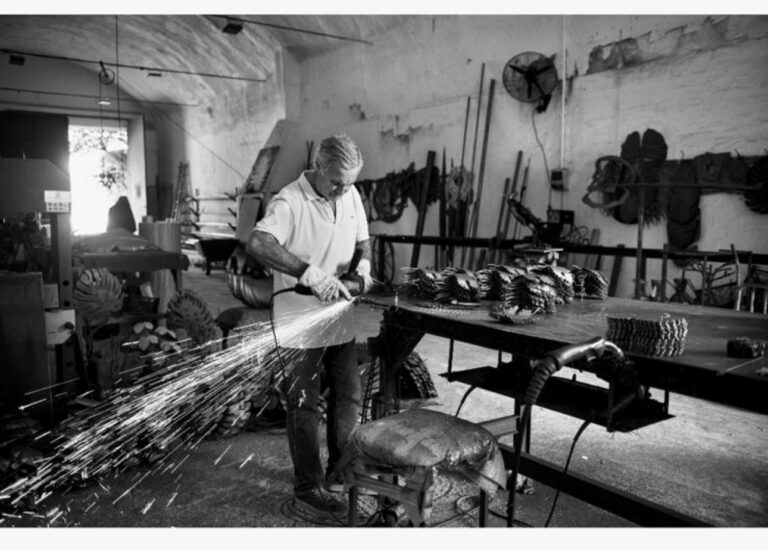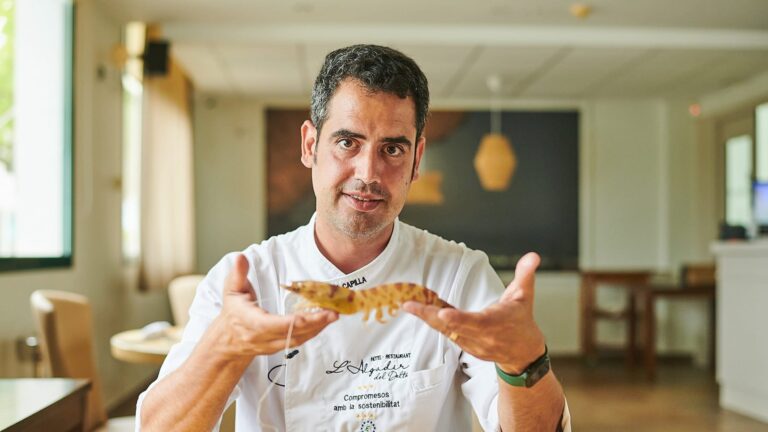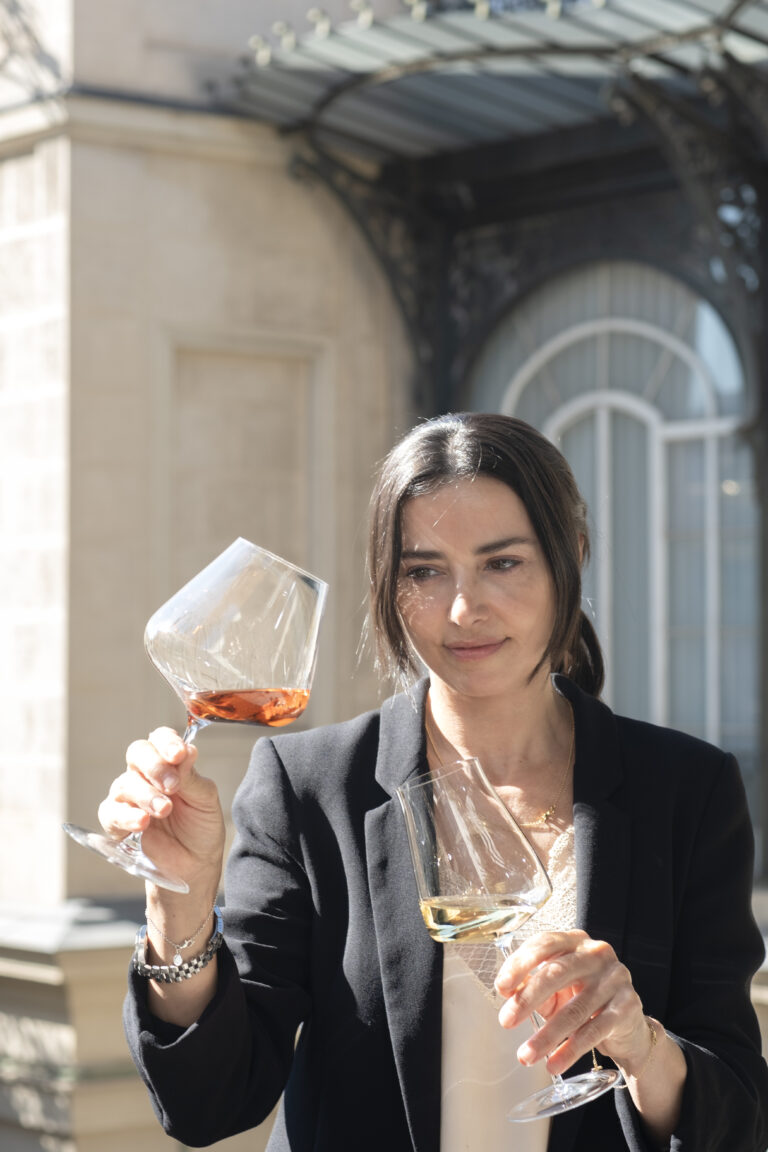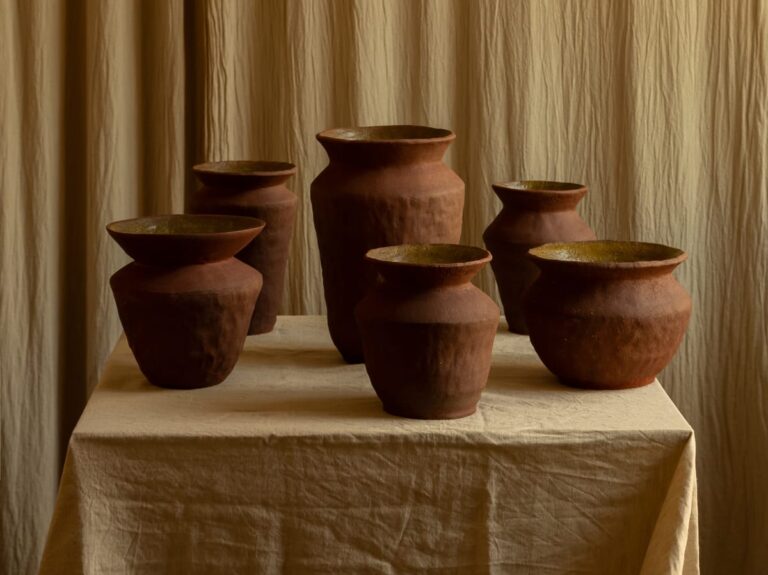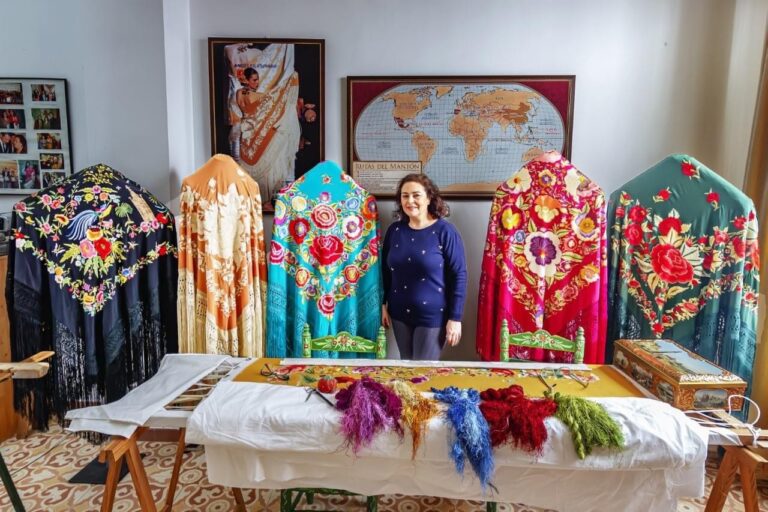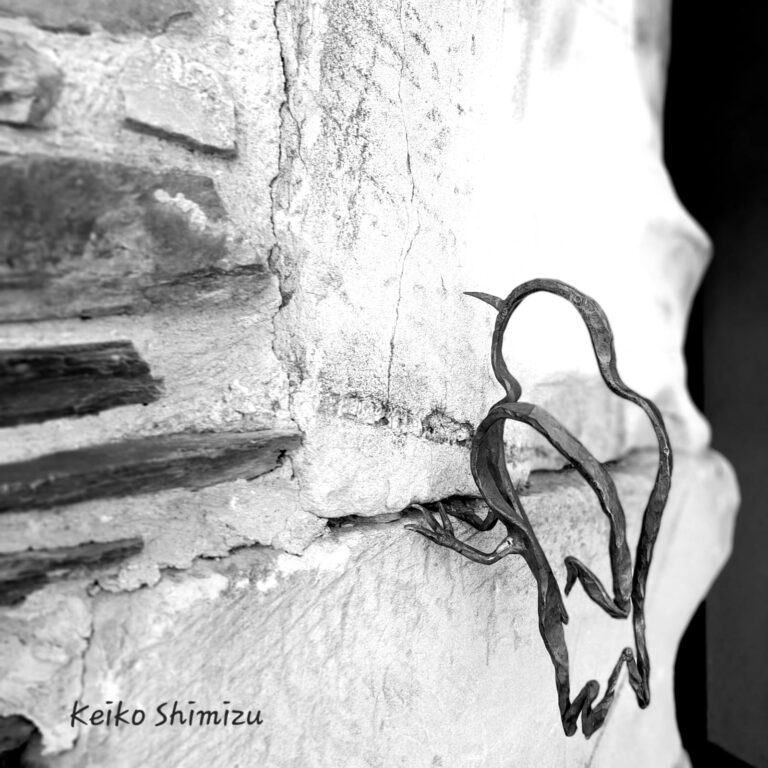GastroBio
A novel, educational, and useful project. This is GastroBio. It is good that it exists in a country where gastronomy is a devotion and where seafood is a mainstay. But what is it useful for? Well, to know the traceability of fish and seafood, to be able to apply this knowledge in the kitchen, and then inform the diner, the fellow chef, the fisherman... In short, to know what we cook and what we eat.
For this reason, a chef and a scientist have joined forces to analyze -“artisanal” and empirically- the life of the animal, the way it has been caught, its edible parts, and how it has been treated until it arrives at the restaurant.
Chef Rafa Zafra puts his passion for the product into the kitchens of Estimar Barcelona. Marine scientist Arnau Subías, professor of the master's degree in Sustainable Gastronomic Product and Creativity at the Barcelona Culinary Hub and Master in Ecology, Management, and Restoration of the Natural Environment, provides the scientific part. In this interview, Arnau “immerses” us in his life and this interesting project:
Hello Arnau. You studied Marine Sciences. How immense is it?
First of all, it is a pleasure to be here and I am grateful that you count on me and give voice to this type of project. What fascinates me most about the seas and oceans and what motivated me to study them is their immensity and the lack of knowledge we have about them. When I am asked this type of question, I always like to comment on the following phrase: We have better maps of the surface of the Moon or Mars than of the seabed, of which we have only mapped 20%. Many people do not know that the average depth of the oceans is about 3,700 meters and there are areas where they reach more than 10,000 meters of depth, further than the summit of Everest. In biological terms, due to the vastness and inaccessibility of many parts of the oceans, there are still many species to discover and understand, which I find fascinating.

What is it like to be the marine scientist of a prestigious restaurant and work alongside Rafa Zafra? What do you bring to the table?
Well, as it could not be otherwise, it is an honor and a pleasure to work alongside Rafa. In addition, I am very grateful to him because from the beginning he has always supported me and believed in me and the project. Both professionally and personally we got along very well from the start. He brings me his knowledge of the product and cooking, and I bring my biological knowledge and everything I learn every time we go fishing and travel around the world to learn about products and have information about them. Sometimes people are surprised when I tell them that I am a scientist and work in a restaurant, but I think that despite being two different worlds (science and gastronomy), the union of both can create something unique and I think that Rafa and I are proving that. We are very grateful for the support of everyone.
What is your greatest hobby outside of science?
I love underwater photography, but if I had to choose a hobby, it would definitely be traveling. I have visited countries like Ghana, Panama, Jordan, India… I love getting to know the world and cultures and, at least once a year, together with my partner, we try to take a trip of this type that allows us to disconnect.
Is there any new seafood cuisine that draws your attention the most?
Seafood offal. I love seeing how more and more research is being done into the integral use of seafood.
What is your favorite place in Barcelona?
I love the La Ribera neighborhood, especially the El Born area, where Estimar is located. Its narrow streets, the atmosphere and the good relationship with all the shops. It is a very special area. My family has almost always lived in this neighborhood. The first restaurant where I worked and learned about hospitality was Passadís del Pep (owned by my cousin Joan Manubens) which is also in the area. I have a strong bond with the neighborhood.
Of all the fishing methods, is there any that is less invasive for the product and the environment in which it lives?
There are selective fishing methods that are not invasive, for example, Raor or Lorito fishing, which is very artisanal and carried out with a hook from small boats; or thealcatruz, a method that consists of a ceramic vessel with a shape that imitates a hole or cave, which attracts octopuses to enter it and capture them.
The one that leaves the product more “touched” and is more aggressive for the environment is, as everyone knows, bottom trawling. But I think that it would be difficult to supply the entire population without trawling, and that, if the regulation is strict and complied with, its impact can be much less.
Taking into account the meaning that glù gives to “craftsmanship”, where can we use this concept within the GastroBio project?
As glù appreciates, something “artisanal” must have minimum parameters of passion, quality, detail, and care. GastroBio is exactly that; a project that was born to disseminate and share information, with a great effort and research behind it so that the final information we transmit is clear and of quality.
What comes to mind when you hear the words sustainability and ecology?
I think that they are very overused words without fully understanding them. Sustainability is included within ecology, and for something to be sustainable, by definition, means that it can be maintained for a long time without exhausting resources or causing serious damage to the environment. Sustainability is linked to fishing, and I am happy because I believe that fishing regulations are becoming more correct and strict and this will allow it to be much more sustainable and the populations of species that are consumed to remain stable.
Can you answer the question that Eugenio Monesma, our previous protagonist, left for the next? It is this: To what extent is your life linked to the natural world that surrounds us?
My life is totally linked to the natural world. In the end, we depend entirely on it for, among other things, food, something basic for survival. In my case, my work life is also totally linked to it because I am dedicated to researching and documenting it.

We imagine that you have been able to try the menu at Estimar Barcelona, do you remember what you ate?
I have been lucky enough to try some of the dishes at Estimar and it is spectacular. 100% fresh and local produce. I love the espardeñas with Maresme teardrop peas, two spectacular products from our region that combine wonderfully. And beyond seafood, the cheesecake is delicious.
What is a “product sommelier”?
It's a term we invented to propose the following: if there is a sommelier for wine who informs and explains everything that is behind each wine, why can't there be a figure in the dining room who does the same, but about what we eat?
Can you leave us a question for the next protagonist?
Yes: do you think it is important to know the traceability of the fish or seafood we consume?

